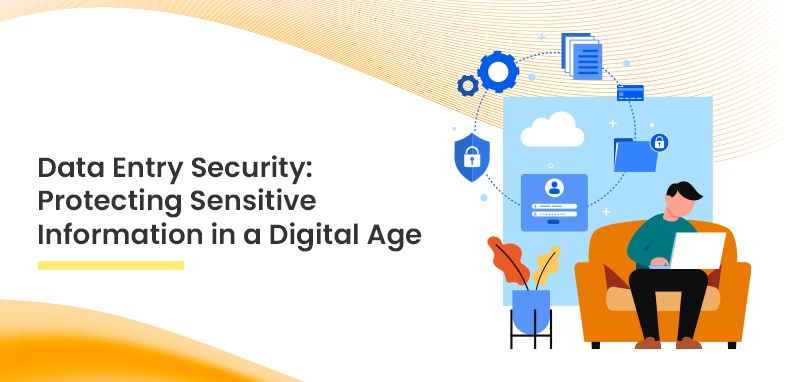Data Entry Security: Protecting Sensitive Information in a Digital Age
In today’s digital era, data entry is a fundamental aspect of most business operations. From customer information to financial records, businesses are reliant on digital data to drive their decision-making processes. However, this reliance brings with it significant security concerns, particularly regarding the protection of sensitive information. Data entry security is crucial for safeguarding confidential data from unauthorized access, breaches, and cyber threats. This blog explores the importance of data entry security, common threats, and best practices for protecting sensitive information in a digital age.

The Importance of Data Entry Security
Data entry security is essential for maintaining the integrity and confidentiality of sensitive information. Organizations handle a vast amount of data daily, including personal details, financial records, and proprietary business information. One of the primary reasons for prioritizing data entry security is regulatory compliance. Various industries are governed by regulations that mandate the protection of sensitive information. The Health Insurance Portability and Accountability Act (HIPAA) requires healthcare organizations to safeguard patient data, while the General Data Protection Regulation (GDPR) enforces data protection standards for businesses operating in the European Union.
Common Threats to Data Entry Security
Several threats can compromise data entry security, each with its own implications for sensitive information:
-
Cyber Attacks: Cybercriminals employ various techniques, such as phishing, malware, and ransomware, to gain unauthorized access to data. Phishing attacks often involve deceptive emails or messages that trick users into sensitive information.
-
Insider Threats: Not all threats come from external sources. Insider threats involve employees or contractors who misuse their access to data for malicious purposes or due to negligence. These threats can be particularly challenging to detect and prevent, as insiders typically have legitimate access to the systems and data.
-
Human Error: Human error is a common cause of data security issues. Mistakes such as accidental data deletion, incorrect data entry, or failure to follow security protocols can compromise the integrity and confidentiality of sensitive information.
Best Practices for Data Entry Security
Implementing robust data entry security practices is crucial for protecting sensitive information. Here are some best practices to consider:
-
Access Control: Restrict access to sensitive data based on roles and responsibilities. Implement role-based access control (RBAC) to ensure that only authorized personnel can access specific data sets.
-
Data Encryption: Encrypt sensitive data both at rest and in transit to protect it from unauthorized access. Encryption transforms data into an unreadable format, which can only be decrypted with the correct key.
-
Regular Security Audits: Conduct regular security audits to identify and address potential vulnerabilities in data entry systems. Audits help in assessing the effectiveness of existing security measures and uncovering areas that need improvement.
-
Data Backup: Regularly backup data to ensure that it can be restored in case of a cyber attack or system failure. Backups should be stored securely, preferably off site or in the cloud, to protect them from physical damage or theft.
-
Employee Training: Train employees on data security best practices and the importance of safeguarding sensitive information. Education should cover recognizing phishing attempts, using strong passwords, and following data protection protocols.
-
Software Updates: Keep all software and systems up to date with the latest security patches and updates. Software vendors regularly release updates to address known vulnerabilities and enhance security features. Failure to apply these updates can leave systems exposed to attacks.
Conclusion
In an age where data is a valuable asset, protecting sensitive information during data entry is important. The importance of data entry security cannot be overstated, as breaches and unauthorized access can have far-reaching consequences for businesses and individuals alike. By implementing robust security measures, including access control, data encryption, strong authentication, regular audits, and employee training, organizations can safeguard their data and mitigate the risks associated with cyber threats and human error.
